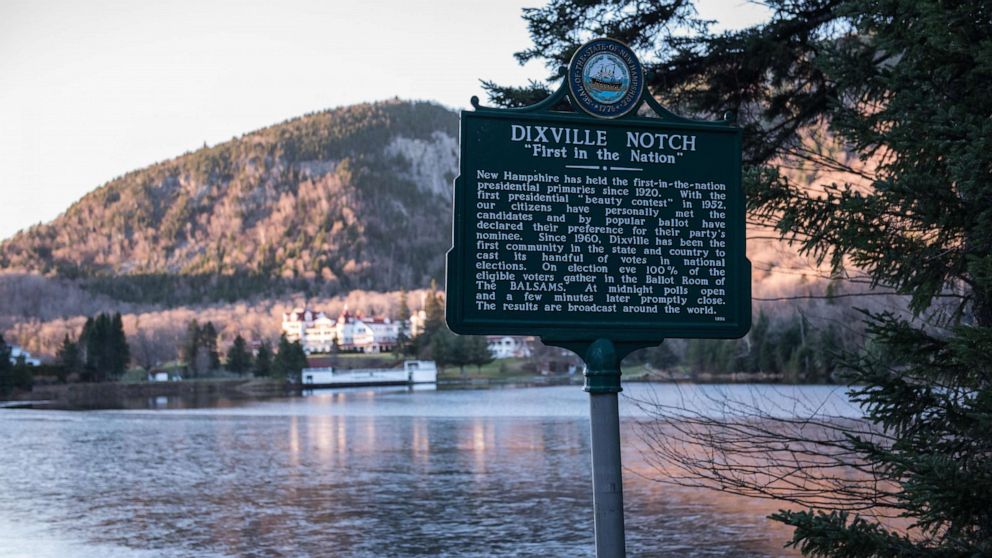Meet the voters who will cast the 1st NH primary ballots of 2020
North Country is a stretch of rural New Hampshire without government services -- there's no trash pickup, and residents dig their own wells -- and the nearest hospital at which to see a specialist could be hours away.
Voting booths here have been barns and laundry rooms and bedrooms and even dining rooms.
They open at midnight on Tuesday.
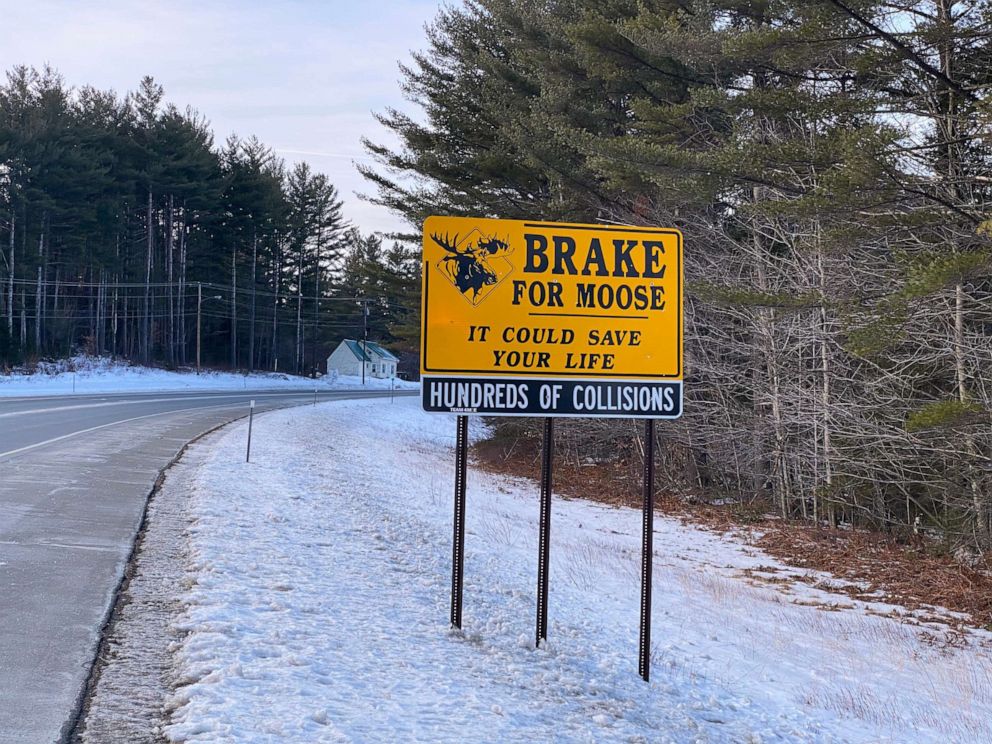
"We have far more moose than people here," joke the residents, many of whom seek out polling places before or after work. Others, in three small communities, go quite a bit earlier.
Hart's Location
The tradition of midnight primary voting didn't begin to attract attention or become a media spectacle. It began, in the tiny town of Hart's Location, to accommodate a shift change for railroad workers.
"It allowed all the men who worked on the railroad at night to vote, so that's how it started," Town Moderator Les Schoof told ABC News ahead of the network's Democratic presidential primary debate in New Hampshire on Friday.The tradition ended in the 1960s when citizens were tired of being "harassed by the press," but it returned in the 1990s.
The midnight voting took place in the dining rooms of Schoof's Bed and Breakfast and The Notchland Inn, but moved down the road, to the town hall, in the early 2000s.
Midnight voting requires 100% participation -- usually from a few dozen people. Citizens must fill out a form saying whether they'll be voting at midnight, via absentee ballot or declining to vote.
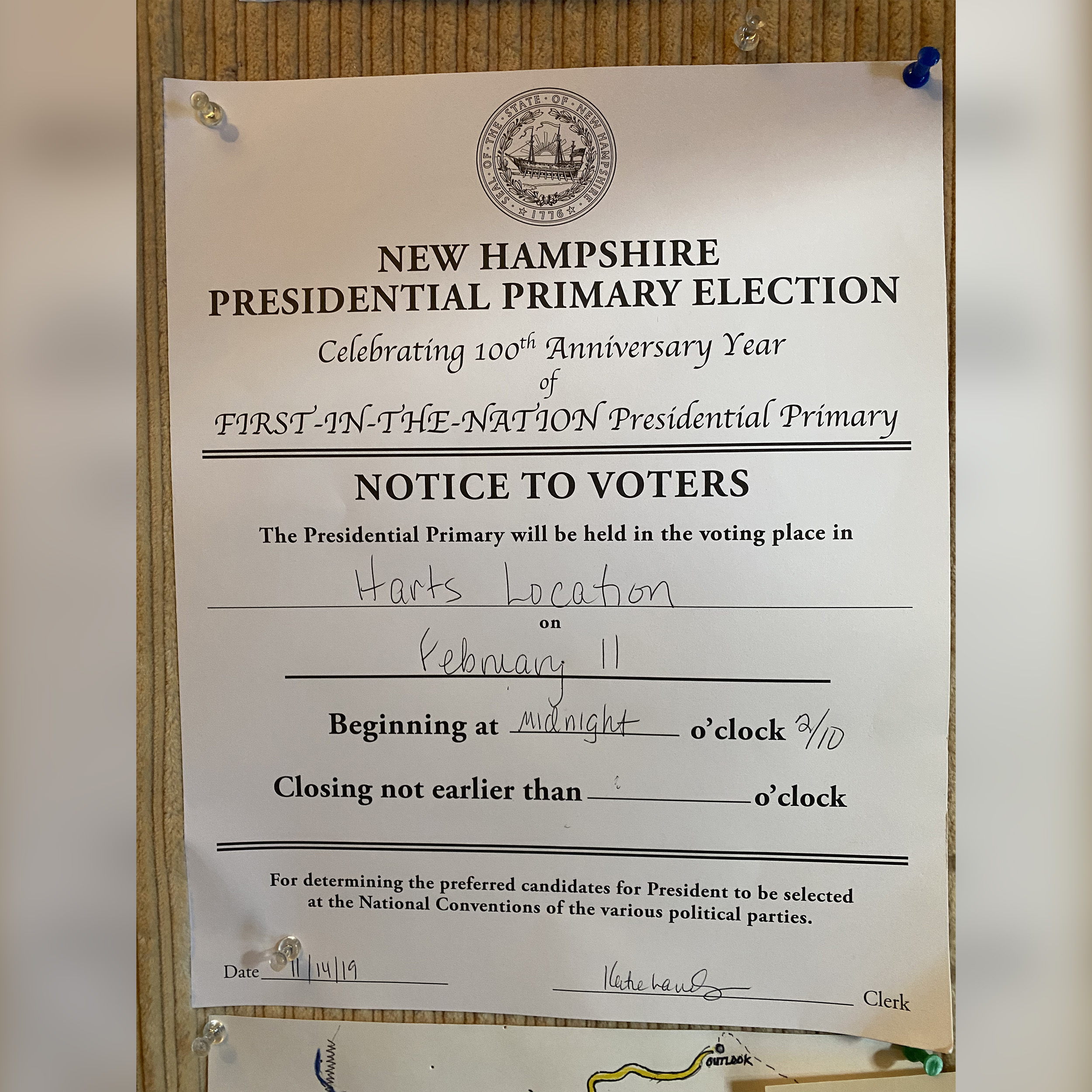
The voters have their own traditions as well, Schoof said. Many gather around 11:30 p.m. for coffee and tea as a local reporter watches the clock to ensure ballots are cast at exactly midnight.
Often, the oldest citizen votes first.
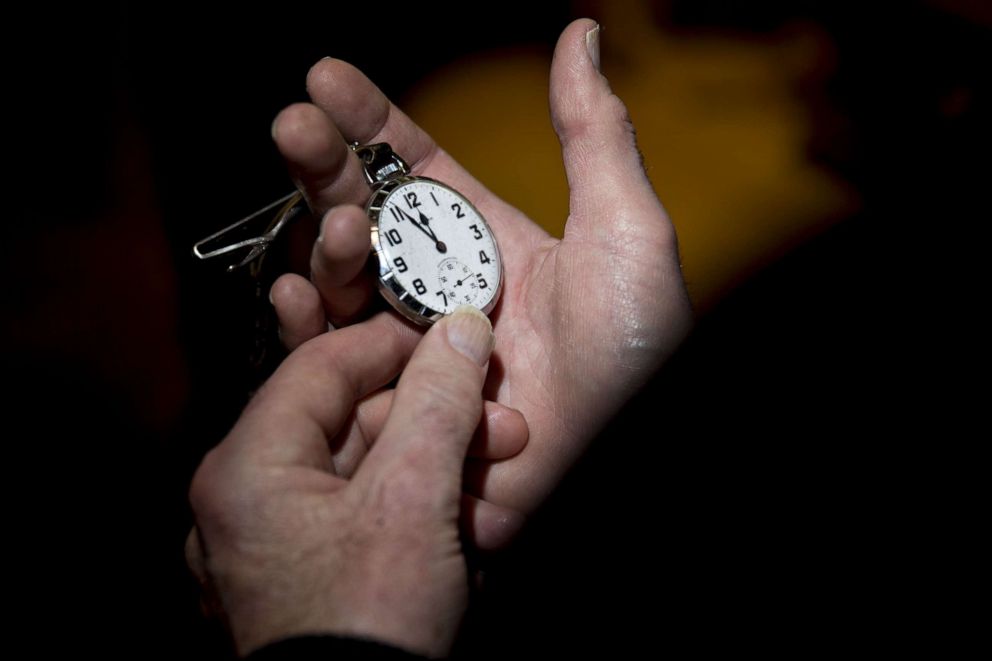
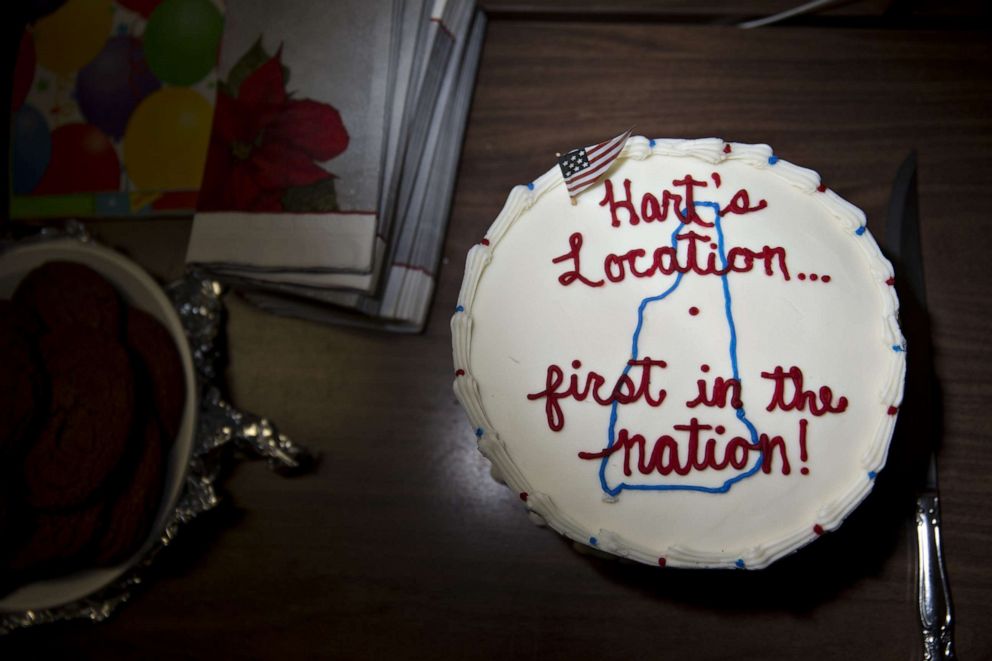
"We're now the largest" when it comes to midnight voting, Schoof said.
Usually, 25 to 30 people vote at midnight, with several others submitting absentee ballots.
With enough voting booths to accommodate everyone fairly quickly, the official tally is announced a few minutes later. Voters see the unofficial result and go home, and officials spend about an hour confirming the ballots. Then the town clerk certifies the vote and sends it to the police station. The ballots are shipped to Concord, the state capital, the following morning.
Voters "rarely" tell Schoof whether they're leaning toward a certain candidate. In fact, Schoof said he wasn't yet sure for whom he'd cast a ballot.
"I really don't know who is going to pull it down," he added. "Much like the rest of the nation, it's going to be interesting to see."
Millsfield
Millsfield, New Hampshire, is another close-knit community with more moose than people.
Wayne Urso, Millsfield's chief elections organizer, told ABC News it's a community where "certainly all of the residents know each other." He said he could "point out the home of each voter."
Millsfield began midnight voting in the 1950s, according to a Time Magazine article that resident Sonja Sheldon keeps in one of her drawers.
"We joke that we were first in the nation to vote, and last in the nation to receive electricity," Sonja's husband, Charlie, said. The electrical grid arrived in Millsfield in the 1960s.
Similar to Hart's Location, midnight voting halted for a period, but it returned in 2016 when New Hampshire Secretary of State William Gardner asked residents to restore it.
Before midnight voting returned, ballots were cast in barns or on top of washing machines or at Sonja's bed and breakfast.
"The bedrooms were the voting booths," Sonja said. Voters waiting for a booth did so in her living room, which also serves as the town hall and a community center.
The living room is the site of an annual town meeting, for which Sonja said she "makes a cake or cookies or something sweet," and it hosts a Christmas party.
Once every vote is cast, "we would count the ballots right there," said Sonja, gesturing toward her dining room table.
"We look forward to getting together as a group for any reason, and midnight voting is another one of those reasons to get together," Urso added.
In order to bring back the midnight vote, Millsfield sought guidance from Hart's Location.
"We asked for their help," Urso continued. "They provided expertise and helped us along the way."
That included ensuring 100% voter accountability so the polls could quickly close after voting.
The buildup to midnight voting in Millsfield was raucous.
"We had a countdown clock, had spectators, had some press there," Urso told ABC News, "and at the stroke of midnight, the voters each found a booth, and marked their ballots."
After the ballots were counted about 10 minutes later, the ballot box returned to where it will rest until the next election: Sonja's dining room.
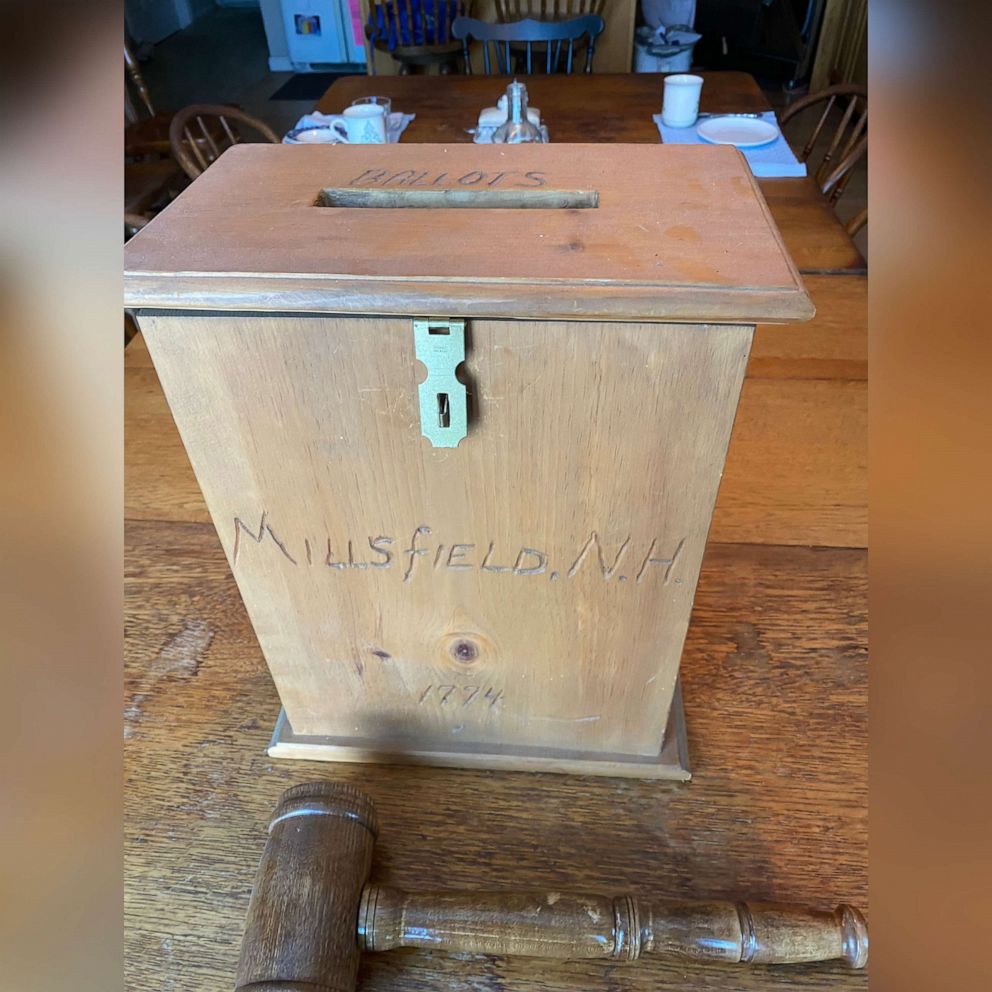
After the town clerk certifies the ballots, they similarly wind their way down to Concord.
Dixville Notch
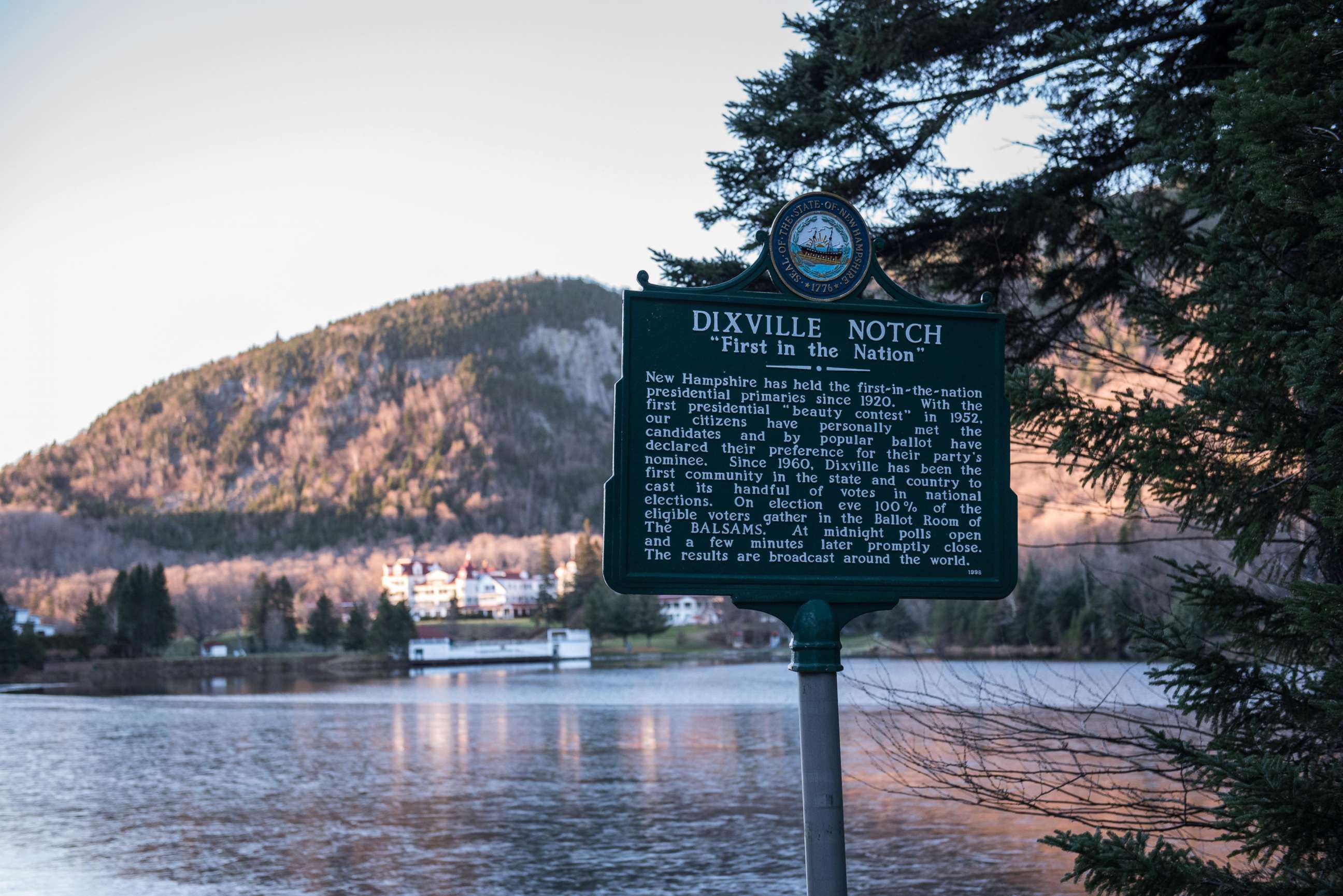
While not the first to participate in midnight voting, Dixville Notch may be the most famous for it.
The town is home to The Balsams Resort, a luxury hotel that served as a summer getaway throughout the 19th and 20th centuries. In 1960, the resort began midnight voting when nine people cast ballots. Most of the voters lived and worked at the resort or the accompanying factory.
Midnight voting in Dixville Notch has continued uninterrupted.
But that streak nearly ended. After a resident moved away earlier this year, the town didn't have enough people in order to have a polling location. Developer Leslie Otten moved from Maine to Dixville Notch in order for the tradition to continue.
"First voting in the national primary is to New Hampshire what snow is to skiing," Otten said. "This is just part of the heritage of the state and part of the importance of showing democracy in action."
Otten, who's working on a $186 million redevelopment project to reopen The Balsams, which was sold in 2010 and shut down, said he didn't want too much credit for keeping alive midnight voting in Dixville Notch.
"There's five people that are going to vote, and all five of them are necessary, so I don't think it's just me," he said.
The ballot room had to move from the hotel to another building on the property. Otten said the room may contain only five voters, but they're joined by dozens of others, including journalists, seeking to witness history.
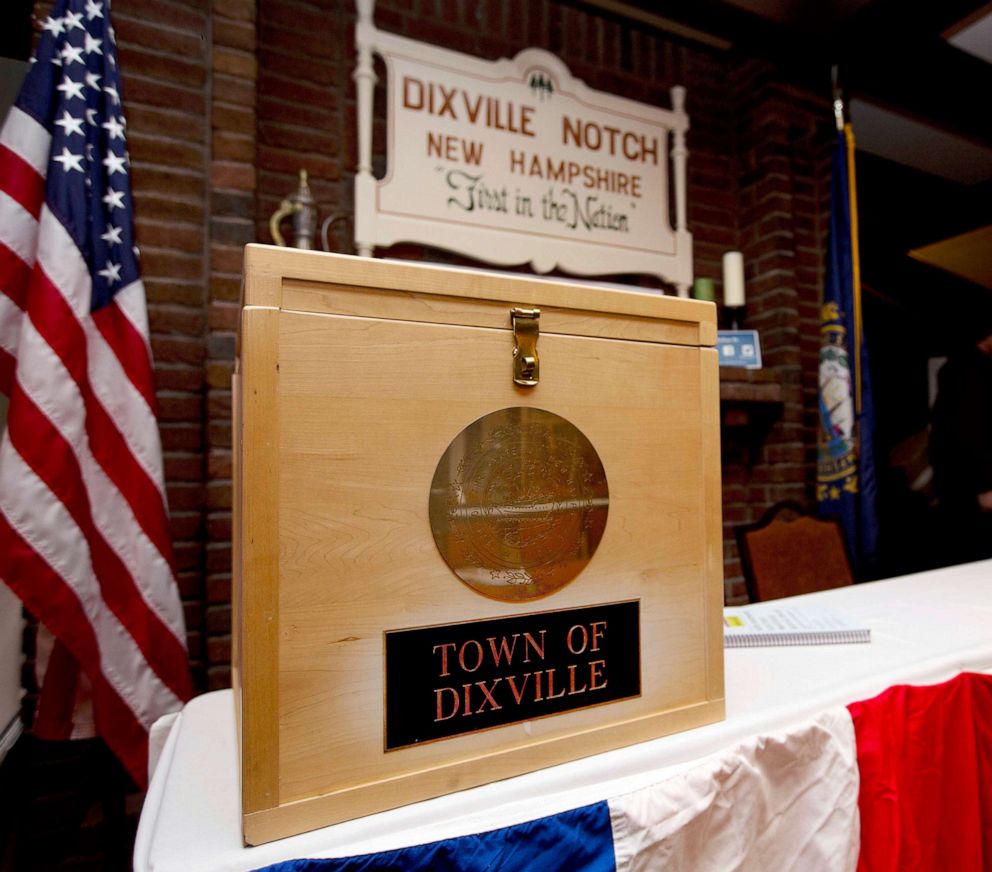
Dixville Notch Town Moderator Tom Tillotson is grateful that Otten now calls Dixville Notch home.
"It's become a tradition, and everyone wants to see a tradition continue," he said.
And Tom's father, Neil, started it.
"It's the starting gun for the election process," Tom added "If 100% of the population of a little town can come out at midnight and vote, well, gee, maybe more people could get out and vote."
As Dixville Notch's only registered Republican, Otten wouldn't say for whom he's voting.
Tillotson also hasn't decided, but he said he won't divulge before he votes.
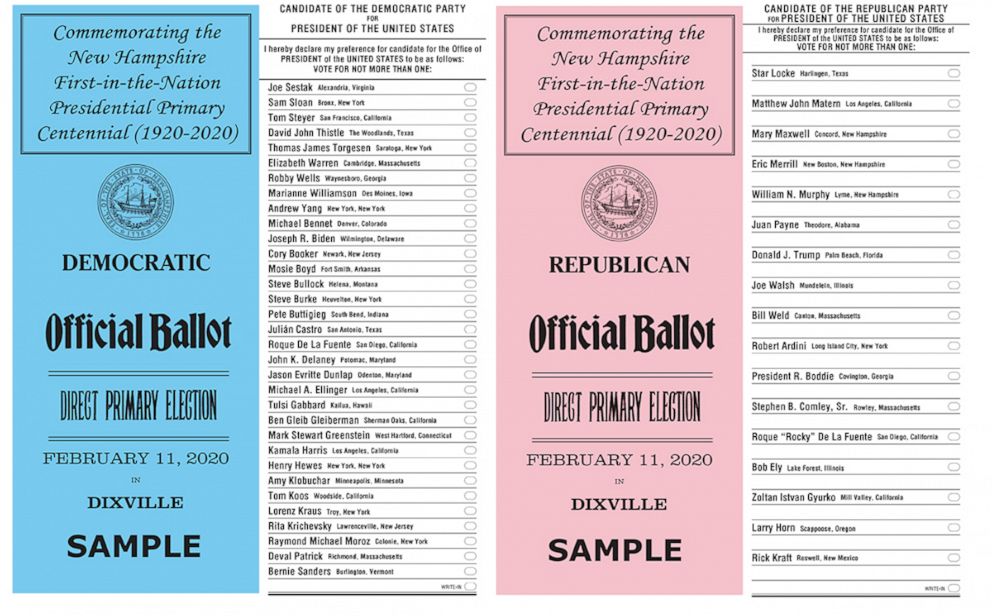
Dixville Notch used to be a popular campaign stop for candidates in North Country. Ronald Reagan visited the resort while campaigning in 1976.
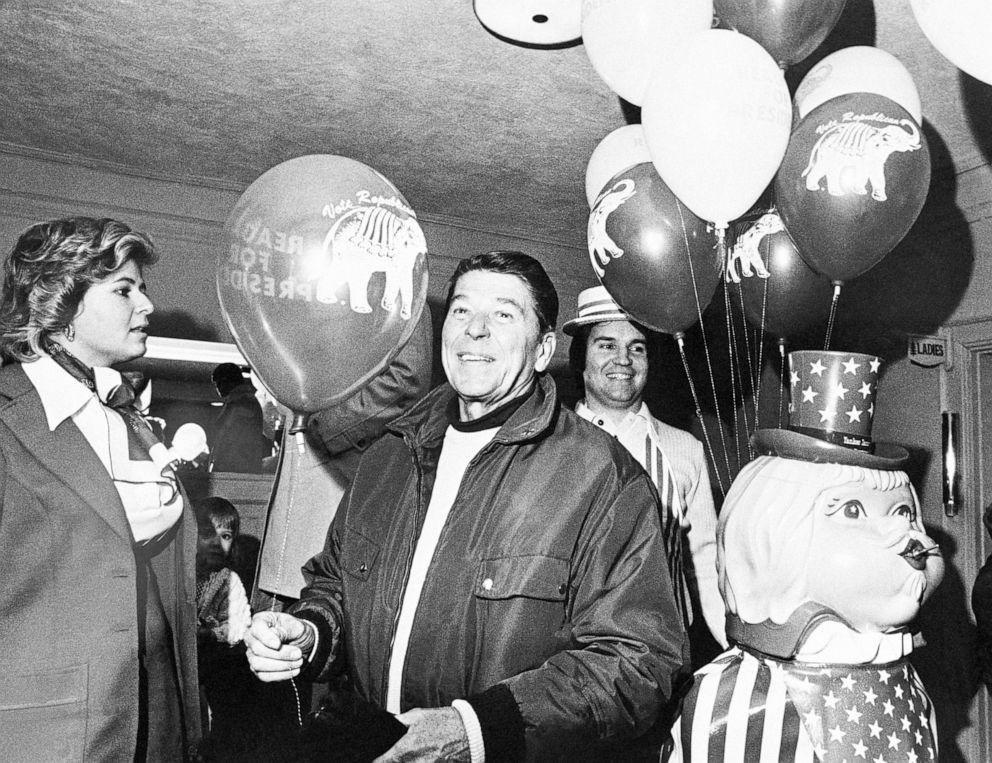
And the late Arizona Sen. John McCain visited the tiny town during his "Straight Talk Express" tour of the state in 2007 during his presidential campaign.
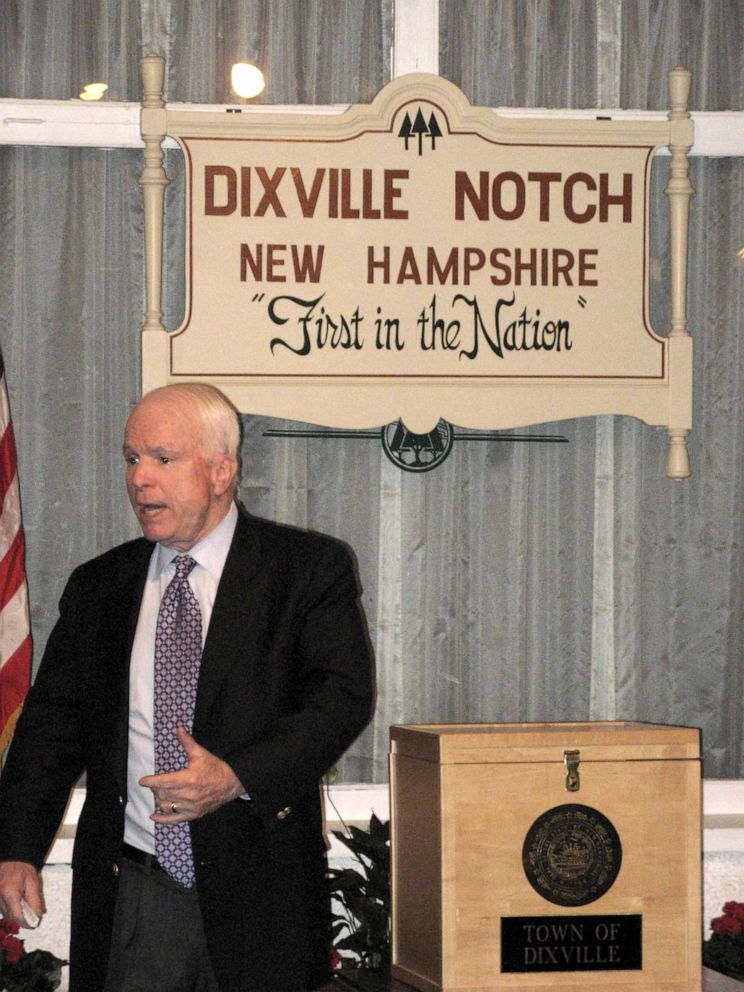
But during the 2020 campaign, only one candidate visited the tiny town. Sen. Michael Bennet went less than 48 hours before the residents cast their ballots. Bennet, along with his three daughters, sat down with Dixville Notch's four independent voters. Bennet tweeted that he was "deeply grateful to them for sitting down" with him.
We’re in Dixville Notch, home of the #FITN primary where residents cast votes at midnight. My family & I are deeply grateful to them for sitting down with us today.
New Hampshire is central to my campaign because of traditions like this—where face-to-face conversations matter. pic.twitter.com/rlHgpwJUq9
— Michael Bennet (@MichaelBennet) February 10, 2020
Former Gov. John Lynch recently visited Dixville Notch, campaigning for former Vice President Joe Biden, and sat down with three of the five voters.
"It's good to be back," Lynch said. "North Country as a whole will have a major impact on the presidential primary because people in the North Country takes their voting very seriously."
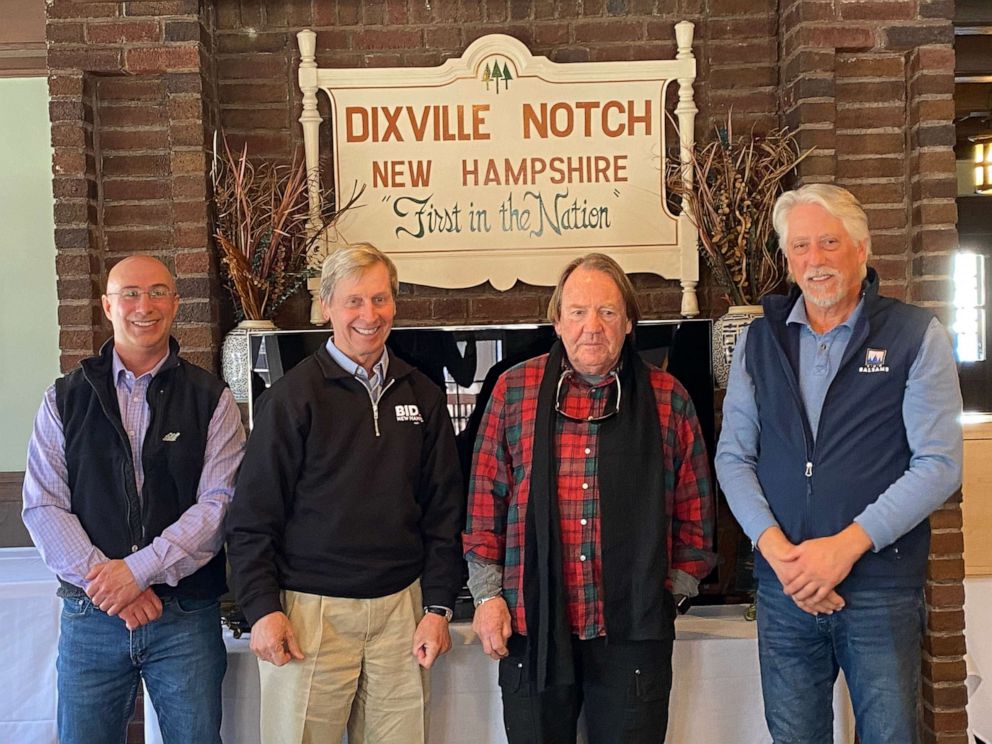
"We started the process," Tillotson added, "and it's up to the rest of the people in the state and country to get out and vote."
